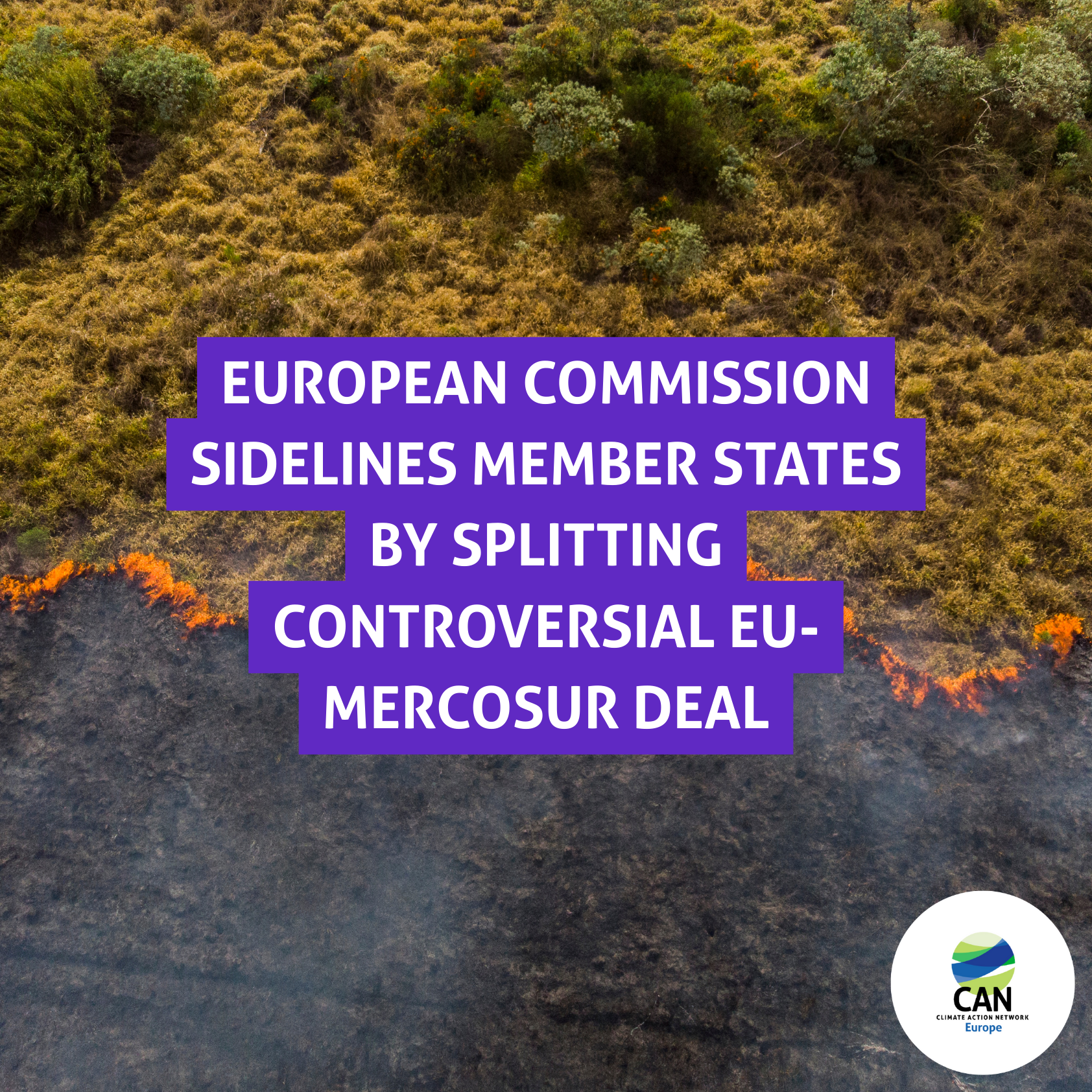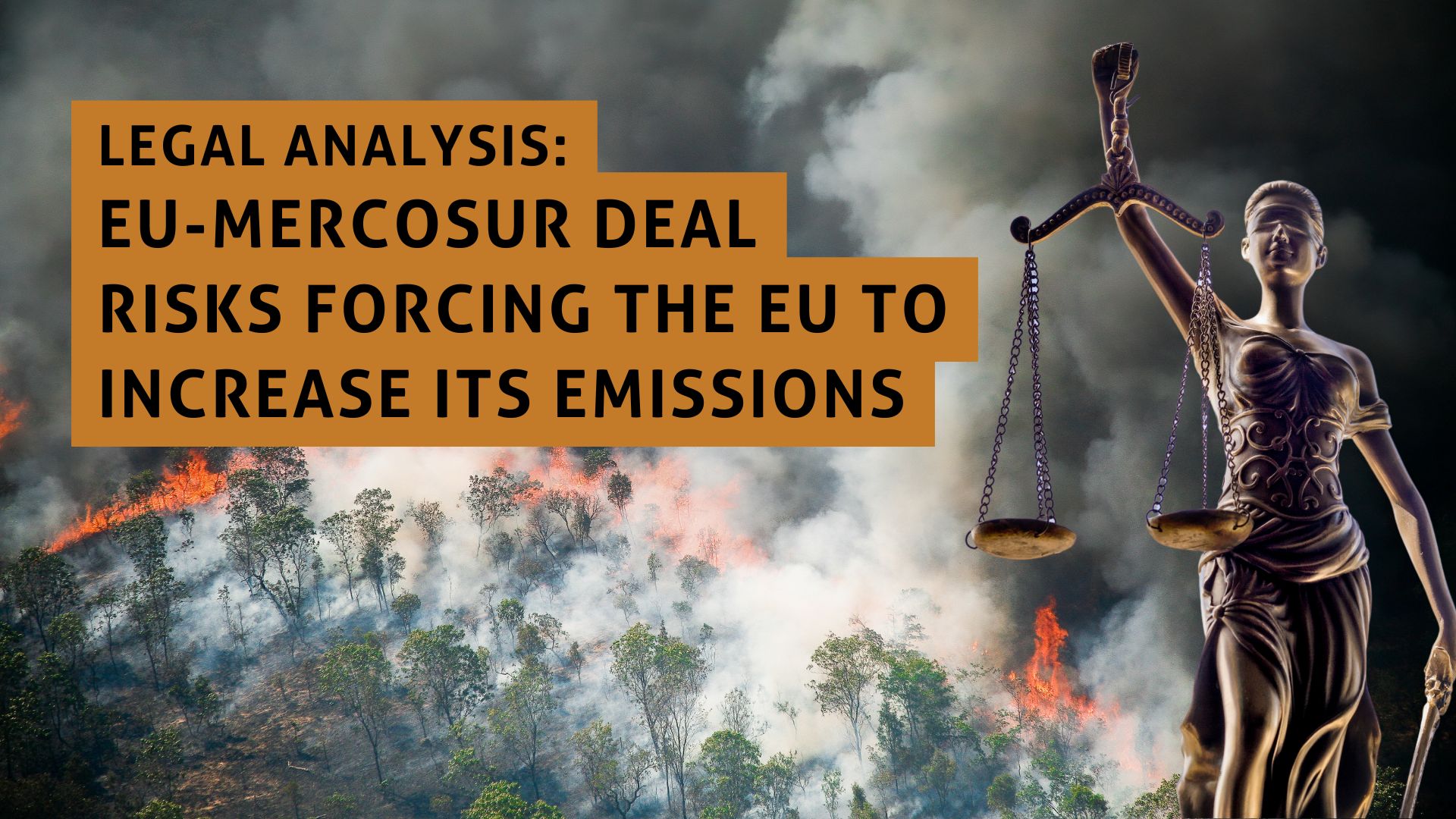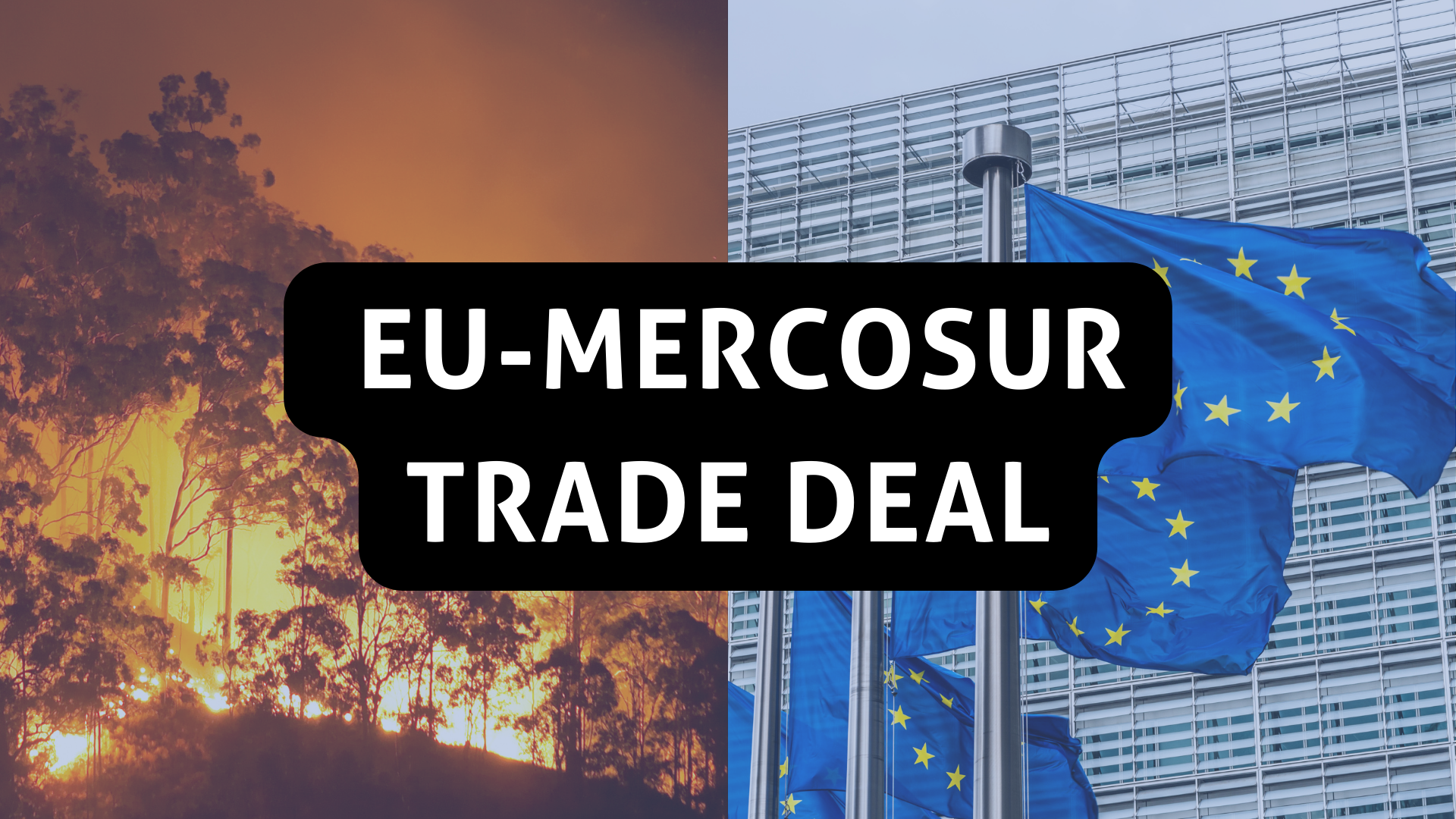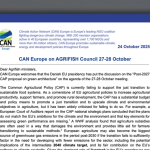
The EU-Mercosur trade agreement will benefit a handful of big corporations while driving deforestation, the climate crisis and exposing small-scale farmers to unfair competition.
Join our call and say no to this toxic trade deal. Email your ministers and MEPs now ➡️
Step 1️⃣: Select your country to email your Minister or MEP.
Step 2️⃣: Fill in your details.
Step 3️⃣: We have a draft ready for you to send. (More languages to be added soon!)
Step 4️⃣: Send!
The trade deal between the European Union and Mercosur countries (Brazil, Argentina, Uruguay and Paraguay), will increase trade in products such as meat, soy, and dangerous pesticides banned in the EU.
The EU-Mercosur deal will increase trade in products such as meat, soy, and dangerous pesticides banned in the EU. These products are major drivers of climate change, deforestation, biodiversity loss and fuel land grabbing of indigenous people territories. At a time when the Amazon rainforest could soon reach a tipping point, the deal would lead to even more deforestation.
Negotiated for more than 25 years behind closed doors, this outdated and secretive trade deal lacks any public participation or scrutiny. This lack of transparency has been widely criticised.
Despite massive farmers’ protests against the deal and the opposition of several European countries, the European Commission is considering changing the ratification process to bypass critical member states and their national parliaments.
Hundreds of civil society organisations and parliamentarians have condemned this manoeuvre as an assault on democracy.
We are now entering a crucial stage: the summer 2025 marks the critical phase of negotiations with a possible European Council vote happening in September and a vote in the European Parliament at the end of this year.
We must do everything we can to ensure that all decision-makers understand what is at stake and what impact the agreement will have on people, the environment, economic structures and social cohesion.
It’s not a done deal yet and we still have time to tell our elected representatives to vote against this deal.
Every voice matters now. Yours too!
We can stop this toxic deal — take action now!
Why is the EU-Mercosur deal a toxic deal for people and the planet?
Why are farmers mobilising against this deal?
Signing the EU-Mercosur deal will only benefit the corporate agri-business sector, at the expense of family and small-scale farmers on both sides of the Atlantic. The deal will jeopardise our food sovereignty and spell a disaster for animal welfare. It will create unfair competition, dumping of products and a collapse of prices for European farmers, while also destroying the livelihoods of small-scale farmers and local communities in South American countries. Therefore, farmers have been some of the most vocal opponents of this free trade agreement. Across Belgium, Poland, France, Ireland, Spain and Bulgaria, farmers took to the streets, expressing their strong opposition to a trade deal between the EU and the Mercosur countries. Many of them are concerned about the impact that it would have on their livelihoods. And they are right. Small and medium-sized farms are the backbone of European agriculture but this deal pushes them even deeper into the struggle.
How does the EU-Mercosur deal impact our health?
The EU-Mercosur deal is a bad deal for public health. The European Consumer Organisation (BEUC) warns that the deal is likely to fail in safeguarding consumer interests. Worse, the deal comes just as the EU suspended imports from Brazilian beef over concerns it contains hormones the EU banned decades ago in livestock production.
Toxic pesticides banned in Europe could end up on our plates again if this deal goes ahead.
The EU-Mercosur trade deal would allow massive amounts of meat, soy and grains, fruit and vegetables from South America—where pesticides banned in Europe are still widely used—to more easily access our markets. This isn’t just a trade deal—it’s a backdoor for toxic chemicals to sneak onto our plates.
It’s a gift to Big Agribusiness, but a disaster for our health and Europe’s small-scale, local farmers. While family farmers are forced to follow strict environmental and health standards, corporate giants would be free to import cheap food containing banned pesticides. It’s unfair, unsafe, and therefore completely unacceptable.
Will the deal deepen inequalities in the EU and globally?
Studies show that the deal poses severe economic risks, further deepening inequality and hindering sustainable development. Impact studies show that the overall GDP increase from the deal is negligible. This stands in stark contrast with the economy-wide effects this deal will have on the planet and people, in particular indigenous communities, small-scale farmers and workers.
The deal would force the EU to contribute to rising global emissions due to the increased trade in emission-intensive goods. Climate impacts, like floods, heatwaves and droughts, are intensifying and already impose immense economic costs on the EU and the rest of the world. Last year was the hottest year on the planet on record. For the first time ever, temperatures exceeded the 1.5°C threshold above pre-industrial levels!
In times of climate crisis, we need a deep socio-ecological transformation of our economies, not toxic trade deals that lock in incentives to continue business as usual.
What does the Indigenous Peoples say about the deal?
The deal pushes South America further into ecological collapse and props up a destructive neo-colonial economic system that drives social inequalities. This deal directly threatens workers’ rights and the collective rights of Indigenous and rural communities in South America, who already bear a disproportionate burden of the climate crisis and, outrageously, were never consulted about the deal.
Brazil’s largest umbrella Indigenous organisation, the Articulation of Indigenous Peoples of Brazil (APIB), has publicly opposed this deal on the grounds that it would threaten their lands. Research has found that Indigenous territories will face increased deforestation pressure because of this deal.
Moreover, the deal fails to provide adequate protection for the rights of Indigenous Peoples and Local Communities against the adverse impacts of agribusiness expansion and land grabbing.
Instead of enhancing the protection for Indigenous People and local communities, the provisions of the deal weaken the wording “free, prior and informed consent” (recognised by the UN as an essential guarantee of Indigenous People’s rights over the land they live on) to “prior informed consent”. That they don’t even use the established human rights norm in this provision is more evidence that the rights of Indigenous Peoples were not a high priority in the trade deal.
More on EU-Mercosur Trade Deal:
We have the power to stop the climate-wrecking EU-Mercosur trade deal. Time to act is NOW!








